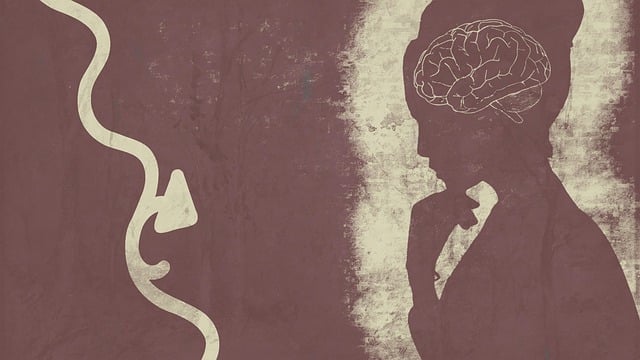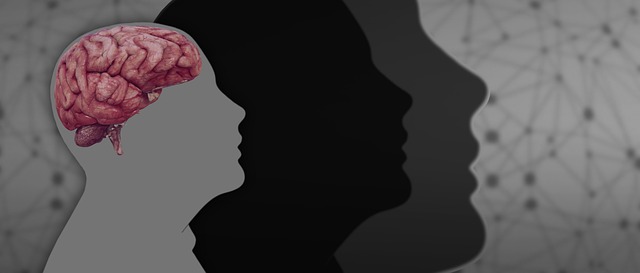Mental wellness is paramount, with conditions like Superior Adjustment Disorder (SAD) significantly impacting daily life. Recognizing SAD's signs, such as emotional detachment and self-destructive behaviors despite external success, is crucial for early intervention. Effective therapy involves cognitive-behavioral therapy (CBT), mindfulness meditation, and self-care practices to challenge negative thought patterns, improve coping skills, and enhance emotional regulation. Adopting a healthier lifestyle through regular exercise, mindfulness, and social skills training further contributes to long-term mental wellness. Building resilience through Superior Adjustment Disorder Therapy (SADT) and community outreach programs empowers individuals to navigate challenges, fostering open conversations about mental health for positive, lasting outcomes.
Mental wellness is a cornerstone of overall health, profoundly influencing our daily lives. Understanding mental wellness and its various manifestations, such as Superior Adjustment Disorder (SAD), is crucial for fostering resilience and promoting well-being. This article explores key aspects of mental wellness, including recognizing SAD symptoms, delving into effective therapeutic approaches, integrating lifestyle changes, and cultivating coping strategies for sustained mental health. Discover practical insights into SAD therapy to enhance your journey towards holistic wellness.
- Understanding Mental Wellness and Its Impact on Daily Life
- Identifying Signs of Superior Adjustment Disorder (SAD)
- Therapeutic Approaches for Effective SAD Therapy
- Lifestyle Changes to Support Mental Health and Well-being
- Building Resilience and Coping Strategies for Long-term Wellness
Understanding Mental Wellness and Its Impact on Daily Life

Understanding mental wellness involves recognizing its profound impact on daily life. Mental health is a state of well-being where individuals realize their own potential, can cope with the normal stresses of life, and are able to work productively and fruitfully. It affects how we think, feel, and act in various aspects of our lives, from relationships to performance at work or school. Unfortunately, mental disorders like Superior Adjustment Disorder (SAD) can significantly impair an individual’s ability to function normally, highlighting the importance of seeking therapy for effective management.
The impact of poor mental wellness extends beyond the individual, permeating social and economic spheres. It can affect productivity, relationships, and overall quality of life. This is where healthcare provider cultural competency training plays a crucial role in ensuring sensitive and effective care. By understanding cultural nuances and providing guidance through Crisis Intervention, mental health professionals can offer tailored support. Similarly, Mental Health Policy Analysis and Advocacy contribute to creating supportive environments, ensuring access to quality care for all, regardless of societal or personal barriers.
Identifying Signs of Superior Adjustment Disorder (SAD)

Recognizing the signs of Superior Adjustment Disorder (SAD) is a crucial step in promoting mental wellness. This often-overlooked condition can manifest as a chronic feeling of unhappiness, despite external successes, and may present itself through various symptoms. Individuals with SAD might excel academically or professionally but struggle significantly in their personal lives, exhibiting emotional detachment, irritability, or even self-destructive behaviors. They may also face challenges in coping with everyday stressors, leading to increased anxiety and depression.
Early intervention is key to effective Superior Adjustment Disorder therapy. Through professional guidance, individuals can learn valuable coping skills development strategies to navigate life’s demands. This includes social skills training to foster meaningful connections and stress management techniques to build resilience. By addressing these aspects, those affected can improve their ability to adapt and find purpose, leading to enhanced overall mental wellness.
Therapeutic Approaches for Effective SAD Therapy

Sadness and lethargy that linger for at least two weeks could be symptoms of Major Depressive Disorder (MDD) or Superior Adjustment Disorder (SAD). Effective SAD therapy leverages various therapeutic approaches, including cognitive-behavioural therapy (CBT), which helps individuals challenge negative thought patterns and behaviours. By restructuring these patterns, CBT promotes healthier ways of thinking and behaving, alleviating depressive symptoms.
Mindfulness meditation, another powerful tool, teaches individuals to focus on the present moment without judgment. This practice has been shown to reduce stress and anxiety, leading to better emotional regulation. Self-care practices, such as regular exercise, adequate sleep, and balanced nutrition, are also essential components of SAD therapy. Stress management techniques, like progressive muscle relaxation and deep breathing exercises, can further bolster an individual’s mental wellness.
Lifestyle Changes to Support Mental Health and Well-being

Adopting a healthier lifestyle plays a significant role in promoting mental wellness and managing conditions like Superior Adjustment Disorder (SAD). Regular physical activity, for instance, can be a powerful tool to combat symptoms of SAD. Exercise releases endorphins, which are natural mood lifters, helping to reduce anxiety and improve overall well-being. Incorporating activities like walking, swimming, or yoga into daily routines can provide an effective outlet for stress relief and enhance mental resilience.
Additionally, mindfulness practices such as Meditation have gained prominence in mental health support. Mindfulness encourages individuals to focus on the present moment, cultivating awareness of thoughts and emotions without judgment. This technique can help individuals with SAD gain a deeper understanding of their triggers and develop healthier coping mechanisms. Social Skills Training and Stress Management Workshops organized by various organizations also contribute to building a supportive network, teaching valuable skills for stress reduction and fostering positive interactions, ultimately supporting long-term mental health and well-being.
Building Resilience and Coping Strategies for Long-term Wellness

Building resilience is a key aspect of long-term mental wellness promotion. It equips individuals with the ability to adapt and bounce back from challenges, stress, and adversity. Through Superior Adjustment Disorder Therapy (SADT), clients learn effective coping strategies tailored to their unique needs. SADT focuses on fostering empathy within the individual, encouraging self-compassion, and developing personal resilience. By integrating these strategies into daily life, people can enhance their overall well-being and navigate future obstacles with greater ease.
Community outreach programs play a significant role in mental health awareness, offering support networks and promoting understanding. Implementing such initiatives allows for the dissemination of valuable resources and empathy-building strategies to diverse populations. These programs not only encourage open conversations about mental health but also equip individuals with practical tools to cope with life’s stressors. By combining personalized therapy like SADT with community outreach, a comprehensive approach to mental wellness is fostered, ensuring long-lasting positive outcomes.
Mental wellness is a multifaceted aspect of daily life, and recognizing the signs and symptoms of disorders like Superior Adjustment Disorder (SAD) is crucial. By understanding the impact of SAD on individuals, we can implement effective therapeutic approaches that promote healing and growth. Integrating lifestyle changes that support mental health and building resilience are key to fostering long-term wellness. Through these comprehensive strategies, we empower ourselves and others to navigate life’s challenges with greater adaptability and overall well-being, focusing on evidence-based practices like Superior Adjustment Disorder therapy.









